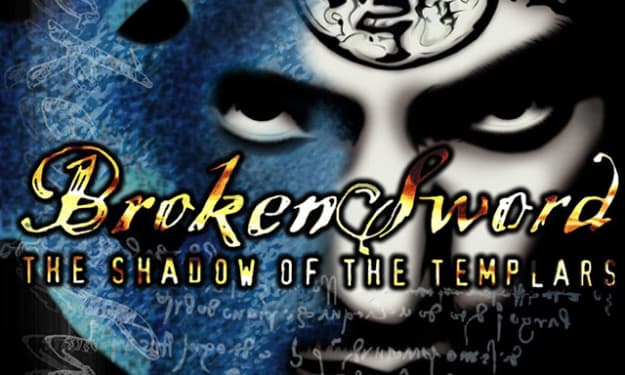How to Write an RPG Character Worth Playing
Five Tips to Make a Dynamic Character for Your Table

Whether you’re brand new to D&D or a veteran with a campaign's worth of experience, creating a story for your character that creates roleplaying moments is challenging, but not impossible.
For many players, time is spent creating the perfect mechanics for adventuring, the right aesthetic and look for your imagination, but in the end they turn out to be another Drizzt Do’urden wannabe. They’re one dimensional, they’re not exciting and engaging. Conversely, maybe you are more experienced as a writer, but want to engage more heavily with your character. Following these tips will help you translate your ideas into a character that excites you when you sit down to play them. Additionally, it’ll provide you with tools and ideas that give your gamemaster a way to weave your character into the narrative.
Tip #1: Ask Your GM About Their Setting
Every GM worth their salt is going to have a good idea about what kind of setting they want to run. Some might set their adventures in existing settings that they can direct you to and some have created entirely homebrew worlds of their own. Either way, asking your GM a little more about the game they are wanting to create will both give you fuel for your imagination and creativity as well as helping the GM establish your character into the world at large.
Once you’ve done a little research or asked your GM questions about their original world, take a step back and consider for yourself what intrigued you the most. What area could you see your character being from? What do you want to know more about? Make some questions and ask your GM more about the specifics. Focus on the parts you want to incorporate into your backstory. This could be anything from places to NPCs, from long lost dungeons to ancient prophecies. And if your DM hasn’t already made something that quite fits your vision, work with them to make your idea fit into their world.
Finally, take a bit of time to consider how these connections to the world may change who your character is. If they’re from a highly religious settlement, would that change how they view their deity, or others?
Tip #2: Every Character Needs a Quest
It doesn’t actually need to be a quest per se, but at the very least your character should have a motivation, something that makes them go out into the world and delve into those dark dungeons, fight those terrible monsters. If they don’t have this desire for something above and beyond the norm, then what has forced them out into the world? Once a quest is conceived, boil down on it. How far is your character willing to go? What lines is he willing to cross?
Once your motivation is fleshed out, talk to GM once again about how this quest might tie into the overarching story. Are there any leads or rumors the GM can give you already? Even if the GM doesn’t immediately have ideas, this allows him to tie your character into the running narrative and provide amazing story moments down the road. As you move forward, your character should consider this quest, and should be yearning for it.
Characters with even more depth often have more than one motivation, and it's okay to flesh out multiple things the character wants to flesh them out and give them more depth.
Tip #3: Consider Your Character’s Past Carefully
Look at the character you have decided to play and try to question every ability and where it might have come from. How did they become so good at sword fighting, where did their skills with magic come from. Any ability, including a proficiency with cartography or an odd choice of spells or abilities could be a little thread to pull on. Consider if their abilities are innate or if they were learned. Where would they have been taught? Who were their teachers? Who spent time with them, who are their heroes and mentors? Use your character's past to predict what they might want in the future.
Looking back towards the early days can help you make decisions in the game. If your character was once an orphan living on city streets and thieving to keep from starving, maybe they still have a natural distrust of the guards. Or, maybe one of the guards snuck them food and made sure they were safe, and now they look up to such organizations. Maybe your character will simply do anything to make sure they don’t end up on the cold streets again. Any of these are valid possibilities and thinking of them gives you small behaviors that make for an interesting story.
Tip #4: Very Little Comes Easy
Most characters don’t get to where they are today without a few problems. Decide what debts your character might have, whether it’s to their father or friend who helped pay for their magic lessons, or to the family of the soldier who sacrificed their life for yours. In getting to where they are today, what did your character have to give up or sacrifice themselves? Are they still close to the ones they trained with, or have they fallen out somehow.
Consider once again your character’s quest or motivation. When you consider what they want-what stands in their way now? This is also an interesting moment to consider your own character’s inner thoughts. Do they know what they are getting themselves into as the adventure begins, do they have weaknesses or fears? Does your character even think that their goal is possible, or do they believe that their mission will ultimately be fruitless?
Coming up with your character’s inner and outer conflicts can create great drama for your character in the world. It will create an inspiring story in the long run, and if there are specific themes you want to engage with, talk to GM about it!
Tip #5: Don’t Be Afraid to Humanize
Not everyone has to be the broody stranger in the dark hood in the corner all the time. Even the greatest heroes and villains have little moments of normalcy. One of the greatest mistakes one can make in creating a backstory is to leave these details out. Even if these aren’t things that you share with your GM or even the other players, little details, like your character's love of cheese can make for a little humanity. Not every character needs to be an orphan who never knew their parents or the long lost heir of a forgotten kingdom. Consider the little details to add a bit of fun to the character.
When it all comes together you’ll find that you’ve made a character who is fun and interesting to play. Above all of that, you’ll have made someone dynamic and flexible instead of a one-sided archetype.
In conclusion, strong connections and motivators can make for intrepid and intriguing heroes that the other players around the table will want to know more about. As a final tip, always remember to talk to your GM about your ideas, as they will love working with you to create the character you’ve dreamed up.
About the Creator
Theo James Taylor
Writer, MCU lover, and HUGE RPG nerd (but especially D&D). I have been a ghostwriter for blogs and other publications for 5 years now, but love the freedom Vocal gives me. You can find me DMing an outrageous Homebrew Campaign every Monday!






Comments
There are no comments for this story
Be the first to respond and start the conversation.